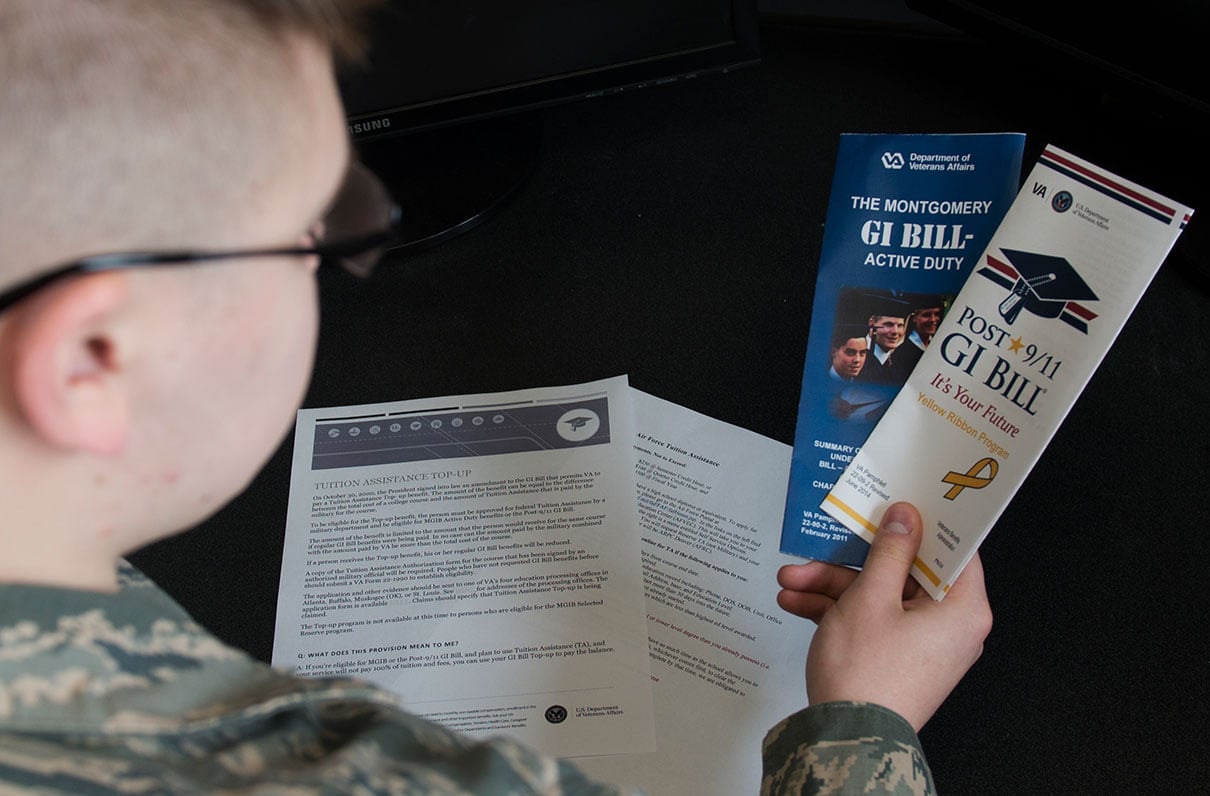A survey measuring support for service-connected students showed a decrease in available funds and several instances where support offices have disappeared entirely since the beginning of the COVID-19 pandemic.
The study, released Feb. 1 by Operation College Promise and reported Feb. 23 by Military Times, found 30% of respondents reported a decreased budget for military support, from the 2019-2020 academic year to the current session, against only 3% reporting an increase. Other data points from the 75 schools and more than 200 service-connected students surveyed presented similar trends:
- Office closures: 72% of schools surveyed have a dedicated military support office in this academic year, down from 80% in 2019-2020. Veterans’ support offices dropped from 82% to 76%.
- Student groups: 64% of schools surveyed have a student veterans’ organization this academic year, down from 72% in 2019-2020.
- COVID impact: Nearly 60% of students reported a “financial impact” caused by the pandemic, with 32% reporting an “impact on employment” and 52% citing “mental health implications.”
Operation College Promise teamed with the Texas A&M University System to produce the report.
[PREMIUM AND LIFE MEMBER WEBINAR: Maximize Your Post-9/11 GI Bill Benefits]
“Schools need to be cognizant that these services are often a yardstick for success and strive to find alternative support methods while advocating to maintain existing programming,” the report’s authors write. “The ability to do so will be a critical factor for military-connected student success.”
These online and on-campus support services can be critical to a student-veteran’s learning experience, said Col. Brian Anderson, USAF (Ret), MOAA’s senior director for transition and member services.
“This is another reminder to do thorough homework before making any higher-education decisions,” Anderson said. “Whether you’re learning virtually or on campus, veteran and military groups can provide more than just a support structure – they can be springboards for your growing professional network.”
Need more transition advice? Visit MOAA’s Transition and Career Center for the latest education-benefit news, career-building tools, and much more.
MOAA Knows Why You Serve
We understand the needs and concerns of military families – and we’re here to help you meet life’s challenges along the way. Join MOAA now and get the support you need.

